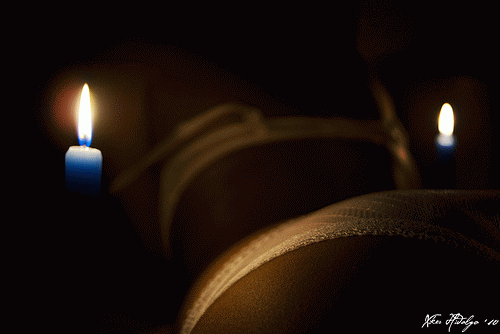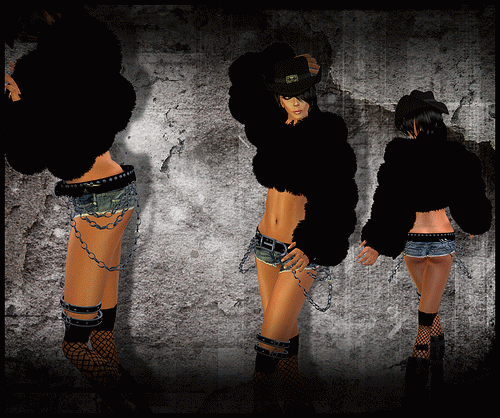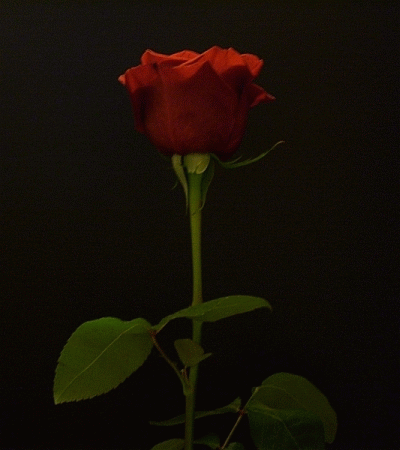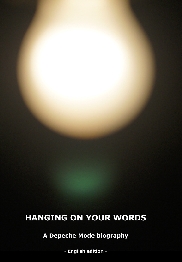1989
On 13 February the single Everything Counts Live was
released. It had been recorded at the Rosebowl. B-sides were other live tracks
as well as some remixes.
On 13 March the album 101 - Live was released.
On 12 June Martin released his solo album Counterfeit e.p.
with cover songs.
The internal problems increased slowly, although it wasn't obvious to the public,
and maybe even still not obvious to the band. So Alan would say later that the
atmosphere was good around then. Martin also would depict the late 1980s
as being absolutely great. He loved the feeling of being in a real gang. He said
that he had a feeling of being invincible, and conquering whichever city they
arrived in.
But from this point onwards this could be true only partly, because the excess
became more serious - also in public. They became known as the band that was able
to drink a whole bar dry in one evening. I remember an article that began with
meeting the band in a bar, and the band members were frustrated because it was a
milk bar or something like that, so no alcohol was available.
This became particularly noticeable at the beginning of the recording of
Violator in Milan, when they mainly got out of it instead of working.
Dave's marriage ran into trouble. He frequently called Theresa, mostly drunk.
During the rehearsals for Worldviolation, he met her again, and he thought he had
fallen in love with her.
Alan: "Dave was increasingly living in his own world. The most
unsettling thing was that his drug use adversely affected his personality,
either through enhanced aggression or the loss of his greatest asset,
his sense of humour. I think I noticed it during the period of recording
Violator in Milan. I remember, for no reason, he deliberately picked
a fight with about 10 locals just walking down the street. I was petrified,
expecting to be knifed at any moment, but somehow he always got away with
that sort of behaviour."[1]

(Dangerous - with friendly permission of © Xiker Hidalgo)
They recorded Violator about three weeks at Mute in London before they
moved on to Milan. They spent about six weeks there, but most of the time they
weren't doing anything. Instead, they went out partying. Concentration levels
were low, and in some ways the tensions were exacerbated by Alan's and Flood's
(the co-producer on Violator and SOFAD) desire to spend more time
constructing intricate sequences and involved sounds.
Alan: "Studios can be incredibly claustrophobic places -
even more for those who perhaps don't play a big part
in the nuts and bolts of the process. Boredom is an especially
powerful and destructive force. For example, one of the most
annoying things is if I'm working on a complicated sample
(which I want to cut up into many pieces and reconfigure
into something new), the process is inevitably complex and
until the procedure is complete, things will usually sound
chaotic and meaningless to anyone listening in. If someone
who doesn't fully understand this procedure interjects
negatively at an unfinished stage, it can be really irritating."
Additional tensions were brought in by Francois Kervorkian.
Alan: "Francois had mixed Personal Jesus with us in Milan and
brought with him an excitable and at times quite 'difficult to work with'
personality. He was quite loud and opinionated as well as being prone
to mood swings for no apparent reason. I liked him though, and his methods.
We never took him or his stroppiness too seriously and a healthy amount of
piss taking would usually force a smile to his face. He looks something
like the British athlete, Fatima Whitbread, so her poster ended up on the
studio wall (much to his disgust). He liked to work long hours and is
something of a perfectionist - again, something I admired. For him, it must
have been as strange an experience to work with us as it was for us to work
with him. However, the tension that resulted from this was good for the
record and provided the individual tracks with some extra touches, as well
as a much-needed new angle."[2]
Later they mixed the whole album with Kervorkian in London.
In Milan only the single Personal Jesus / Dangerous got ready and was released on 29 August. Beside the 7" mix, there were some different versions of Personal Jesus available, an acoustic version, the Holier than Thou Approach (this is the 12" version), the Pump Mix (instrumental) and the Telephone Stomp Mix. There were also two different versions of the B-side Dangerous available, the Hazchemix and the Sensual Mix. While most other DM singles prior to Personal Jesus usually had band-made extended mixes, the band started to invite more DJs and mixers which would become the mainstay for all future DM singles.
Personal Jesus would become one of their most successful singles although
many people misinterpreted the song.
Martin: "Our problem is that we've never been banned, just relegated to
the evening shows. We did have a few problems with Personal Jesus
but in America they took it as a religious tribute. Ha! It seems you can get
away with anything if you've got nice pop tunes!"[3]
Fletch: "We were always very, very pessimistic as a band, we were
always afraid the worst could happen. We always think the record gets bad,
that it has a bad chart entry, isn't played on the radio. Martin wrote
Personal Jesus and we loved it. It was an excellent song, sounded
excellently, we recorded it ... and we thought: 'This record will never be
played.' We wouldn't say our songs are controversial. They do cause controversy,
but Martin would say all he does is write about life. Martin's a classic
songwriter and he's a great pop fan. When he presents songs to us they're
songs he's dead sure about. We're like a family really, so usually what he
writes about is the sort of thing we're experiencing too. Martin doesn't
get us around the table and say 'Listen lads, this is what this one's about.'
He never explains the lyrics at all. I've heard about 10 different
interpretations of Personal Jesus and that's what Martin really likes."[4]
Martin mentioned that Personal Jesus is based on Priscilla Presley calling
her husband Elvis by that name. "It's a song about being a Jesus for somebody
else, someone to give you hope and care. It's about how Elvis was her man and
her mentor and how often that happens in love relationships; how everybody's
heart is like a god in some way, and that's not a very balanced view of
someone, is it?"[5]
In another interview (a video interview during the recording session at the Puk
Studios) Dave said that the lyrics are about "TV-preachers" in the U.S., who you
just have to phone to get rid of all your sorrows. Probably the title of the
song and the figure of "Personal Jesus" itself refer to what Martin said, while
the lyrics suit the story about the TV-preachers.
Personal Jesus was the band's first gold single in the U.S. and their first
Top 40 hit there since People Are People.
Dave (about the acoustic version of Personal Jesus):
"That's, I'm sure, how the song was originally written. Martin and I just went
in the studio, and he strummed away while I was singing. I think it's a
really good feel, actually - it's the song at it's bare minimum. And a very
different sort of sound of Depeche Mode as well."[6]
Fletch (about the video): "Personal Jesus could have been my
worst experience because we was actually in this desert town in Spain, it
was one of these cowboy towns where they make all the westerns and stuff.
And all day, they'd been telling me, 'Well, Fletch, you know, you've got to ride
a horse later,' and things like that. And I was like, 'Aw, f***. You know, I can't
ride a horse.' You know. 'Don't worry, you'll be OK. He's nice, he's calm ...
he's big, but he's OK.' And it came to this bit and everyone was with me to
watch me ride this horse, you know. It turned out it was a rocking horse. It's
like one of those sort of nice wind-ups, but it did spoil my whole day thinking
about that."[7]

(Personal Jesus - with friendly permission of ©
Ariel Zuhal & Candy Durant
Calamity in Second Life on Facebook)
With Violator the band tried to improve the recording and the production
process and explore new ways, although Fletch probably exaggerated it a bit too
much when he said, "In the past we were basically
re-recording Martin's demos with better sound, better production and Dave's
vocals. For this album we said to Martin, just present the demos on
acoustic guitar and organ, only lyrics and chords, so we could decide
the direction of songs as a group. It's also the first time we've used a
producer rather than an engineer / producer."[8]
Well, they probably didn't just "re-recording Martin's demos with better sound,
better production and Dave's vocals" in the past.
(E.g. Pipeline is quite different to the demo,
while the demo to Shake the Disease is
close to final result.) Or as Alan said, "If we had recorded them as
they were I could have gone on holiday for a year." But: "It is probably fair
to say that from Violator onwards, the final results bore less resemblance
to the original demos."
They had already had a co-producer with David Bascombe at Music for the Masses,
and Flood with whom they recorded Violator and later SOFAD was also
only a co-producer.
So this statement is more specific:
Alan: "We did something that was extremely strange
to us - we simply went into the studio and played.
It might sound funny but it was really strange for us."
And about Flood's role, he said, "Flood and I worked
well together. Our styles complimented each other -
my musical angle coupled with his technical prowess."
While Martin would reflect Violator as "Alan's album" (and remarkably as
his "favourite record") later, Alan wasn't satisfied completely, favoured
SOFAD much more. Dave was quite self-critical as well.
Alan: "There were times when it was obvious
that Dave would have liked the band to 'rock out' more. Even though I wouldn't
have necessarily advocated the use of more guitars, I could sometimes share his
sense of frustration at the lack of dynamics - something I go on about a lot
as well because I believe it is so important within music."
Dave tried to bring himself more into the production and
they "used some of his playing" [on the guitar] "as sound effects in one of
the crossfade sections of Violator. He has his own 'special' style",
when he plays the guitar."[9]

The next recording session for Violator took place in the Puk Studios in Denmark,
before they mixed the album in London.
Alan: "The Puk period was much more prolific and although some tracks
like Clean and Policy of Truth went through many guises before
the final versions were settled upon, we had the most productive and
enjoyable time."[10]
Martin: "We had a lot of problems with recording Policy of Truth.
We actually recorded it twice, two totally different versions. For a long time
it sounded ... some kind of stupid ... it had no surprises or anything. But
in the end we really liked the result of it.[11] I remember the original demo
of World in My Eyes being slightly faster and maybe slightly more obvious.
While we were recording it in Milan, Dave was going away for a couple of days,
so we worked on it and turned it into this really moody piece. I can remember
Dave arriving back in the studio, slightly jet-lagged and being totally shocked,
thinking that we just ruined the song, but half a day later he came back and
said 'that's really good, the way it's turned out.' It always takes a while
to get used to things."[12]
Alan: "There was a song called Mother Me which we also
recorded during this period but never finished, and for a long time
Happiest Girl was going to be on the LP. As for singles, Halo
was on a short-list but was never really a major contender. We ended up
using it in a roundabout way by making a video (as well as one for Clean)
to fill out the Strange Too compilation."[13]
Whereas this recording session had been a very successful one, another problem
arose. Fletch suffered from a serious depression and became convinced he was
physically ill. Finally, he had to depart to see a doctor.
Martin: "It was absolutely hopeless, it didn't matter what you said.
He would sit in the studio moaning with the longest face on, then would get
up and kind of shuffle to the floor like an old man. There was one day after
he walked out, the rest of us looked at each other and burst out laughing
because it just looked like an act! We were thinking he can't be serious!
But he was. That was the first week of it happening, we had no idea that
he was going through depression."[14]
For a while Fletch went to several doctors who tried different kinds of
anti-depression medication. These changed his personality and made things worse.
It took long before the right therapy was found.

(with friendly permission of © Stella)
On 14 November the film 101 was finally released.
Mute released it as a double DVD. Disc One included the film, Disc Two showed
parts of the Rosebowl gig.
Not everyone liked the film, and some journalists wanted to know why it had been
made at all.
Dave: "The problem with this country [UK] is that we've always been
underrated artistically." (Well, not only in the UK. I recently found some
reviews about DM-albums in old German music-magazines and was pretty surprised
at some so-called music-experts.) "That's one of the reasons to make this film; we
wanted to be portrayed as we really were, and if we're still considered
dickheads, then fair enough."[15]
Martin: "Well, I think with us it wasn't really a serious analysis of
our career. And on the other side, this was the right time to do a film.
I think 101 is quite interesting although I'm still very sceptical as
to whether it's gonna work in the cinema. But it will definitely work as a
video cassette for fans. I hope the fans understand us. We try to put some
realism into our music - if people see the film, they would see that we are
not the serious people that they imagine. There's a lot of humour in
101 and there aren't any scenes where you see us sitting down and
discussing philosophy. We have fun, but we take our music very seriously.
We are very realistic and because of that we get accused of being a
depressive pop band. I can't understand that."[16]
Dave: "Well the film is something that we've been working on for a
long while, all in all about six months. We started to work on it during
the tour - the tour lasted around ten months - and so we felt we had to
sort of document the whole thing, because it was such a big thing that we
were doing in our career. And then we decided to do this big show at the
Rosebowl to finish the whole tour off ..."
The last quote was taken from a TV interview, and the following conversation developed:
Interviewer: "The Rosebowl where?"
Dave: "In Pasadena."
Interviewer: "In California?"
Dave: "In California, yeah, and that was like the biggest crowd we'd
ever played to, and we felt that we should really get it on film."
Interviewer: "And the film is called 101?"
Dave: "Yeah."
Interviewer: "Why?"
Dave: "Well it was in fact the hundred and first concert of the tour ..."
Interviewer: "Oh really?"
Dave: "We were hoping it to be a hundred, but somewhere another one
got added."
Interviewer: "Oh, I think 101 actually has a lot more ring to it than
one hundred."[17]
Just as an example for some journalists' questions ...
After all these years it's still not clear how many people actually were at the concert.
Dave: "There was actually about 70,000 people - there have
been various different people saying different amounts - but there was
actually about 70,000."[18]
Fletch: "I think we were more nervous about the recording and filming
of the show than the actual number of people at the Rosebowl. Personally, I'm
blind so I can only see the front row."[19]
Whether there were 70,000 or 60,000 - the Masses-Tour had been very successful and set
the ball rolling for a new development. DM had become a huge event, and suddenly
earned more money with T-shirts than with anything else.
Dave: "When you tour America, suddenly things like merchandising are
far more important than ticket sales. Merchandise finances tours. People
talk about million dollar deals with merchandisers. Before you know it,
you may as well be running a chain of T-shirt shops. To tour in America
you need to sell T-shirts."[20]
Not all fans as well as not all members of the band were happy about 101
completely.
Alan: "To be honest, I could have done without the 'fans on the bus'
angle which I felt gave the whole film too much of a pop feel. That's not
to say I didn't like the fans, I just think Pennebaker was limited because
he had to make the film from the only perspective he had - a pop band playing
to massive audiences of screaming kids. For that reason alone the film works
but from my personal perspective it's not all that interesting. I would have
liked it to have offered something more in-depth."
He also found it "all pretty embarrassing actually" to see himself acting
in this film, "especially the premiere in London with my parents and friends
sitting there watching us make fools of ourselves in massive cinemascope."[21]
References:
[1] Just Can't Get Enough, Uncut, May 2001. Words: Stephen Dalton
[2] www.recoil.co.uk
[3] Sin Machine, NME, 17 February 1990. Words: Stuart Maconie
[4] Breaking the Silence, Record Mirror, 17 March 1990. Words: Lisa Tilston
[5] Pop a la Mode, Spin, 4 July 1990. Words: Marisa Fox.
[6] The Wherehouse 3/20/90, Sire/Reprise/Mute PRO-C-4329
[7] Interview with Depeche Mode, The Videos 86>98, Mute MF033 and Videos 86>98+, Mute MF042. Director: Sven Harding.
[8] Breaking the Silence, Record Mirror, 17 March 1990. Words: Lisa Tilston
[9] www.recoil.co.uk
[10] www.recoil.co.uk
[11] TV-Interview, 1990
[12] The Singles 86-98 by Martin Gore, Bong 37, September 1998. Compiled by Michaela Olexova
[13] www.recoil.co.uk
[14] Just Can't Get Enough, Uncut, May 2001. Words: Stephen Dalton
[15] The Unlikely Lads, Q, April 1989. Words: Mat Snow
[16] Boys on Film, Melody Maker, 15 April 1989. Words: Francesco Adinolfi
[17] In Movie Mode, "TV-AM", ITV, February 1989
[18] In Movie Mode, "TV-AM", ITV, February 1989
[19] Ask Fletch, Bong 5, May 1989
[20] The Unlikely Lads, Q, April 1989. Words: Mat Snow
[21] www.recoil.co.uk

 BIOGRAPHY
BIOGRAPHY